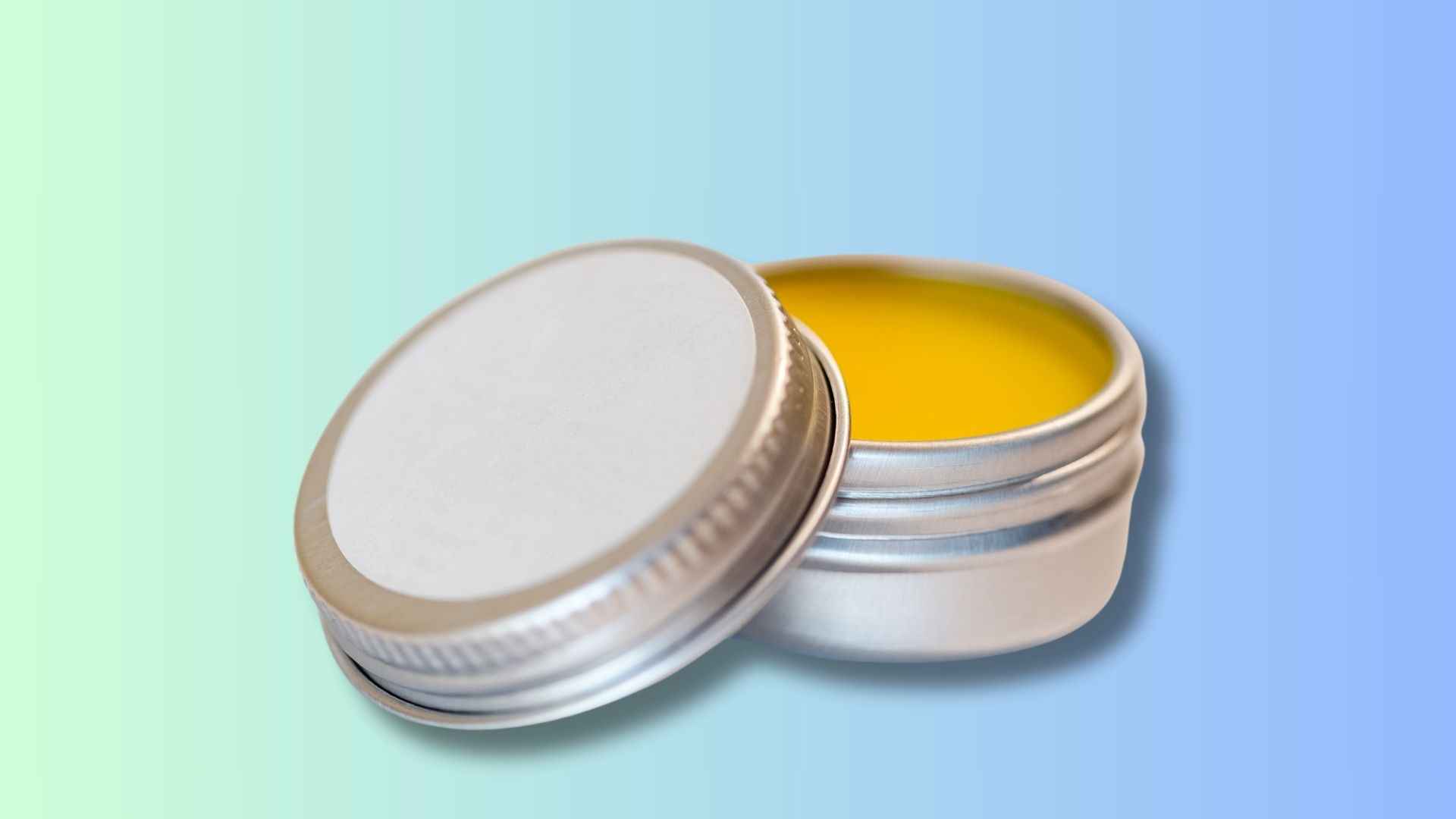Does Oil Pulling Whiten Teeth?
No, oil pulling does not whiten teeth. Some people claim that coconut oil whitens teeth, but the scientific evidence supporting this specific benefit is limited.
Now, oil pulling may indirectly lead to a brighter smile by reducing plaque buildup which can otherwise make your teeth appear. However, it doesn't bleach your teeth like professional whitening treatments or whitening strips do.
These products typically use active ingredients like hydrogen peroxide or carbide peroxide that penetrate your enamel to remove deep stains, a process that oil pulling cannot replicate.
If you're looking for a natural method to enhance your oral hygiene and possibly brighten your smile, consider using nano hydroxyapatite toothpaste because hydroxyapatite has been proven to whiten teeth.
In this after I'll explain everything you need to know about oil pulling teeth whitening and what to use instead.
What Is Oil Pulling?

Oil pulling is a traditional Ayurvedic practice for improving oral hygiene and for spiritual benefits. Among natural remedies, this is one of the most popular.
It involves swishing oil in your mouth for about 20 minutes to remove bacteria and dislodge buildup between your teeth. Back then, this process was used to treat bad breath and gum disease and, while less common now, continues to be practiced today for similar benefits.
While oil pulling was originally conducted with sesame and sunflower oil, virgin coconut oil is more common now. Any oil, including sunflower oil or olive oil, can be used for oil-pulling therapy, but coconut oil has been popularized due to its high lauric acid content and pleasant taste.
Just remember, to maximize the oral health benefits of oil pulling, we recommend brushing with toothpaste tablets, flossing with expandable floss, and using a tongue scraper daily.
Where Does Oil Pulling Come From?

Oil pulling originates from Ayurveda, an ancient system of medicine that has been practiced in India for thousands of years. This traditional health practice is mentioned in the Charaka Samhita, one of the key texts of the Ayurvedic tradition, where it is referred to as "Kavala" or "Gandusha."
Ayurveda emphasizes balance in bodily systems and uses diet, herbal treatment, and yogic breathing to maintain or improve health. Oil pulling is believed to promote oral hygiene, balance the doshas (body energies), and improve overall health according to Ayurvedic principles.
While oil pulling is an ancient practice with many practitioners, please note that the American Dental Association does not endorse it.
How Does Oil Pulling Work?

Oil pulling works by dislodging harmful bacteria from between your teeth before it has a chance to organize into plaque.
Essentially, the oil helps emulsify the bacteria and debris in your mouth, allowing it to be spit out after ~20 minutes. Clinical and diagnostic research suggests that this practice supports a healthy oral microbiome.
That being said, it takes about 20 minutes for oil pulling to have a significant impact on your oral hygiene. Therefore, it is one of the more labor-intensive oral health practices and may not fit into your daily overall health routine.
So, Is Oil Pulling Safe?
Yes, oil pulling is generally considered safe for most people when performed correctly. At a high level, oil pulling involves swishing edible oil in your mouth for a period, then spitting it out, which poses little risk if you're using high-quality, organic oils like coconut or olive oil.
Just be aware that it's important not to swallow the oil you use for pulling because it contains bacteria pulled from your mouth. Otherwise, swallowing the oil can lead to stomach discomfort.
Further, if you have dental restorations, such as fillings or crowns, there's a small chance that the swishing action could dislodge them if they are already loose or weakened. While this is rare, it's something to consider and possibly discuss with your dentist.
Does coconut oil whiten teeth?

Coconut oil does not whiten teeth in the same way that traditional teeth whitening agents do, such as hydrogen peroxide or carbamide peroxide, which are commonly found in whitening toothpastes and professional whitening treatments.
The idea that coconut oil can whiten teeth stems from the practice of oil pulling, an ancient Ayurvedic dental technique that involves swishing oil in the mouth for a period to improve oral health.
While coconut oil pulling is touted for various oral health benefits, including reducing bacteria, plaque, and improving gum health, scientific evidence supporting its ability to whiten teeth is limited.
The process might help in removing some surface stains on the teeth, leading to a slightly brighter appearance, but it does not change the intrinsic color of the teeth.
The whitening effect perceived from oil pulling may be more about achieving cleaner teeth, which can appear whiter, rather than actual bleaching of the tooth enamel.
Therefore, if you're looking for whiter teeth, consider trying natural whitening strips or nano hydroxyapatite toothpaste instead.
Benefits of Oil Pulling

Proponents of oil pulling with coconut oil (or any other oil) suggest that it has benefits that include:
-
Reducing oral bacteria associated with cavities and gingivitis
-
Fighting plaque induced gingivitis
-
Whitening teeth
-
Eliminating bad breath
-
Preventing periodontal disease progression
-
Lowering risk of tooth decay
These potential benefits largely come from oil pulling’s presumed ability to reduce bacterial load in your mouth.
However, there is no academic consensus on the benefits of oil pulling due to the lack of clinical research.
Bacteria
There is some evidence that oil pulling may reduce the number of bacterial colonies living in your mouth.
However, this is a newly evolving field of research and more evidence is required to fully understand the impact.
Bad Breath

By reducing the number of bacterial colonies in your mouth, oil pulling may have some impact to reduce the incidence of halitosis.
Plaque Buildup
Oil pulling is an effective treatment against plaque. In fact, one study found that "both coconut oil and sesame oil can be used for oil-pulling therapy with the aim of plaque regrowth inhibition".
Interestingly, this study also found that this same mechanism had a positive impact on tooth staining as well.
Gingivitis and Inflammation
Preliminary evidence shows that oil pulling may help fight gingivitis by reducing your plaque index. However, it is unclear how significant these results are and whether they can be replicated.
Risks and Considerations of Using Oil Pulling
While oil pulling has gained attention for its potential oral health benefits, it's important to be cautious about relying solely on this practice.
Prolonged swishing can cause jaw discomfort, and there is a risk of accidentally swallowing the oil, which could lead to complications like aspiration.
For a safer, more reliable alternative, it's best to use a natural mouthwash. Natural mouthwashes, often made with ingredients like aloe vera, tea tree oil, or xylitol, can provide effective oral hygiene support by reducing bacteria, freshening breath, and promoting gum health without the risks associated with oil pulling.
Additionally, they are a gentle complement to regular brushing and flossing, ensuring your oral care routine remains balanced and effective.
How to Do Oil Pulling Therapy

To oil pull effectively, follow these steps:
-
First choose your oil: Select a high-quality, edible oil such as coconut oil, sesame oil, or sunflower oil. Coconut oil pulling is popular due to its pleasant taste and potential antibacterial properties, but oil pulling with coconut oil isn't the end-all-be-all of this practice.
-
Measure the oil: Take about 1-2 tablespoons of oil and put it in your mouth.
-
Swish the oil: Swish the oil around in your mouth for about 15-20 minutes. Be sure to pull the oil through your teeth and around your gums. Avoid gargling or swallowing the oil.
-
Spit out the oil: After 15-20 minutes, spit the oil out into a trash can or tissue. Don't spit it into the sink as it could solidify and clog your drain over time.
-
Rinse your mouth: Rinse your mouth thoroughly with warm water or salt water to remove any remaining oil residue.
-
Don't forget to brush your teeth: To avoid improper, poor oral hygiene, be sure to follow up with your regular oral hygiene routine, including brushing with toothpaste tablets and flossing.
Repeat this process daily or several times a week for best results. Most people practice oil pulling in the morning before eating instead of at night.
In summary, oil pulling is an effective, easy-to-implement practice that can have great benefits for your dental health.
Should I brush my teeth after oil pulling?
Yes, you should brush your teeth after oil pulling.
Not only does oil pulling lift bacteria, plaque, and toxins from the mouth, but brushing afterward also ensures these particles are thoroughly removed.
Additionally, rinsing with water right after swishing is beneficial to clear out any lingering oil.
Following this, brushing helps maintain optimal oral hygiene by removing any remaining residue and creating a clean surface for fluoride from toothpaste, which strengthens enamel. For extra freshness, some people even prefer to use an alcohol-free mouthwash afterward.
Ultimately, while oil pulling can be a fantastic addition to your routine, it shouldn’t replace regular brushing and flossing. Together, this combination helps keep your mouth both cleaner and healthier overall.
Is it OK to do oil pulling everyday?
Yes, it is OK to do oil pulling every day, and doing so regularly may offer multiple oral health benefits.
Daily oil pulling with coconut oil can help reduce plaque, bacteria, and gingivitis, it may even reduce bad breath and promote healthier gums when practiced consistently.
Many people find it beneficial to incorporate oil pulling into their morning routine as it helps cleanse the mouth after overnight bacteria buildup.
However, it’s essential to practice oil pulling correctly and not use it as a replacement for regular brushing with nano hydroxyapatite toothpaste and expandable flossing.
Frequently Asked Questions
How long does oil pulling take for results?
Ideally, oil pulling should be practiced daily for 15-20 minutes to effectively remove toxins. While some individuals observe noticeable changes within a few weeks, others may require more time. Maintaining a consistent routine is essential for optimal teeth-whitening results.
Does oil pulling remove yellow teeth?
While some people claim that oil pulling can help whiten teeth, there is limited scientific evidence to support this claim. Oil pulling involves swishing oil around in your mouth for a period of time, with the idea that it removes toxins and bacteria. However, there's no conclusive evidence that it effectively removes yellow stains from teeth. For significant whitening results, it's best to consult with a dentist and consider professional whitening treatments or whitening toothpaste.
How long does it take to whiten your teeth with oil pulling?
The effects of oil pulling on teeth whitening vary widely among individuals, and scientific evidence supporting its effectiveness for this purpose is limited. Some people report a gradual improvement in the whiteness of their teeth over several weeks or months of consistent daily oil pulling. However, it's important to have realistic expectations, as oil pulling is unlikely to produce the immediate or significant results that professional dental whitening treatments can offer. For those interested in trying oil pulling, consistency and patience are key, but consulting a dentist for proven whitening methods is also advisable for more noticeable results.
Can coconut oil make teeth whiter?
Coconut oil is a popular choice for oil pulling, a traditional practice believed by some to improve oral health and whiten teeth. While there are anecdotal reports of coconut oil helping to make teeth appear whiter, scientific evidence to back up these claims is limited. The theory suggests that swishing coconut oil in the mouth might remove bacteria and plaque, potentially leading to a brighter smile. However, it's unlikely to produce dramatic whitening effects comparable to those achieved with professional dental treatments. For significant whitening results, it's best to consult with a dentist.
Does oil oil whiten teeth?
Olive oil, like coconut oil, is sometimes mentioned in discussions about natural teeth whitening methods, particularly in the context of oil pulling. However, there is no substantial scientific evidence to suggest that olive oil can effectively whiten teeth. The practice of oil pulling, which involves swishing oil in the mouth, may help in reducing bacteria and improving oral hygiene, but its effectiveness in whitening teeth is not well-supported by research. For those seeking noticeable and reliable whitening results, professional dental treatments are recommended.
Does oil pulling restore tooth enamel?
Oil pulling does not restore tooth enamel. Enamel loss is permanent and cannot be reversed. Oil pulling, a practice that involves swishing oil in the mouth, is thought to improve oral hygiene by removing bacteria, which can lead to a reduction in plaque and gingivitis. However, there's no scientific evidence to suggest that it can regenerate or restore damaged or lost tooth enamel. To protect and care for tooth enamel, it's important to maintain good oral hygiene, use fluoride toothpaste, and consult with a dentist for appropriate treatments and advice.
Can oil pulling reverse cavities?
Oil pulling cannot reverse cavities. Cavities are caused by tooth decay, which results from acid-producing bacteria eroding the tooth enamel. Once a cavity forms, it requires professional dental treatment, such as filling, to prevent further damage and restore the tooth's integrity. While oil pulling may help reduce the bacteria in the mouth and improve oral hygiene when used as part of a comprehensive dental care routine, it cannot repair cavities or reverse tooth decay. Regular dental check-ups and treatments are essential for managing cavities and maintaining oral health.
What oil do you use for oil pulling?
For oil pulling, it's common to use oils like coconut, sesame, or sunflower oil due to their natural antimicrobial properties. Coconut oil is particularly popular for its mild taste and potential health benefits. Always choose high-quality, cold-pressed, or organic oils for the best results.
What are the oil pulling side effects?
Oil pulling can cause side effects such as jaw stiffness or muscle fatigue from prolonged swishing, and in some cases, accidental swallowing of the oil may lead to nausea or aspiration. Over-reliance on oil pulling without proper oral care can increase the risk of cavities and gum issues. Additionally, allergic reactions may occur, especially with oils like coconut oil.
Why do teeth become yellow?
Teeth can become yellow due to various factors, including the consumption of stain-causing foods and drinks like coffee, tea, and red wine, which discolor the enamel over time. Poor oral hygiene practices, such as inadequate brushing and flossing, lead to plaque buildup and further contribute to yellowing. Aging also naturally wears down enamel, revealing the yellowish dentin beneath, while lifestyle habits like smoking can accelerate staining. To combat this, using nano-hydroxyapatite toothpaste, along with regular flossing, mouth washing, and tongue scraping, is beneficial. Additionally, whitening strips can help remove surface stains and quickly brighten teeth, promoting a comprehensive approach to oral hygiene.
Is oil pulling effective at night?
Yes, oil pulling can be effective at night. The practice involves swishing oil (like coconut or sesame) in the mouth for around 10–20 minutes, which can help reduce harmful bacteria, improve gum health, and freshen breath. Doing it before bed might allow for a cleaner mouth overnight, though morning oil pulling is also popular for removing bacteria built up while sleeping. Regular use can contribute to overall oral hygiene, but it shouldn't replace brushing or flossing.
Is 10 minutes of oil pulling enough?
Yes, 10 minutes of oil pulling can be beneficial, especially if you’re new to the practice or have limited time. While traditional guidelines suggest 15–20 minutes for optimal results, even shorter sessions can help reduce bacteria, freshen breath, and support oral health. Consistency matters more than duration, so regular 10-minute sessions can still provide noticeable benefits.
Does oil pulling remove black stains from teeth?
Oil pulling may help reduce surface stains on teeth, but it’s unlikely to remove black stains or deep discoloration. The swishing action can help lift some plaque and debris, making teeth look a bit brighter over time. However, for stubborn black stains, professional cleaning or whitening treatments are more effective. Oil pulling can be a gentle supplement to your routine, but it shouldn't replace brushing, flossing, or professional dental care.
How soon will I see results from oil pulling?
Results from oil pulling vary depending on the individual and their oral health. Some people notice improvements, such as whiter teeth or fresher breath, within a few weeks, while others may take longer. Consistency in the practice is crucial to achieving noticeable benefits.
Should I brush after oil pulling?
Yes, brushing after oil pulling is recommended to ensure your mouth is thoroughly cleaned. Oil pulling helps remove toxins and debris, and brushing afterward removes any residual oil. Use a gentle toothpaste for best results after completing your oil-pulling routine.
Is oil pulling better at night or morning?
Oil pulling is typically more effective in the morning before eating or drinking anything. This timing helps remove bacteria and toxins that accumulate overnight. However, it can also be done at night if it fits better into your schedule.






















